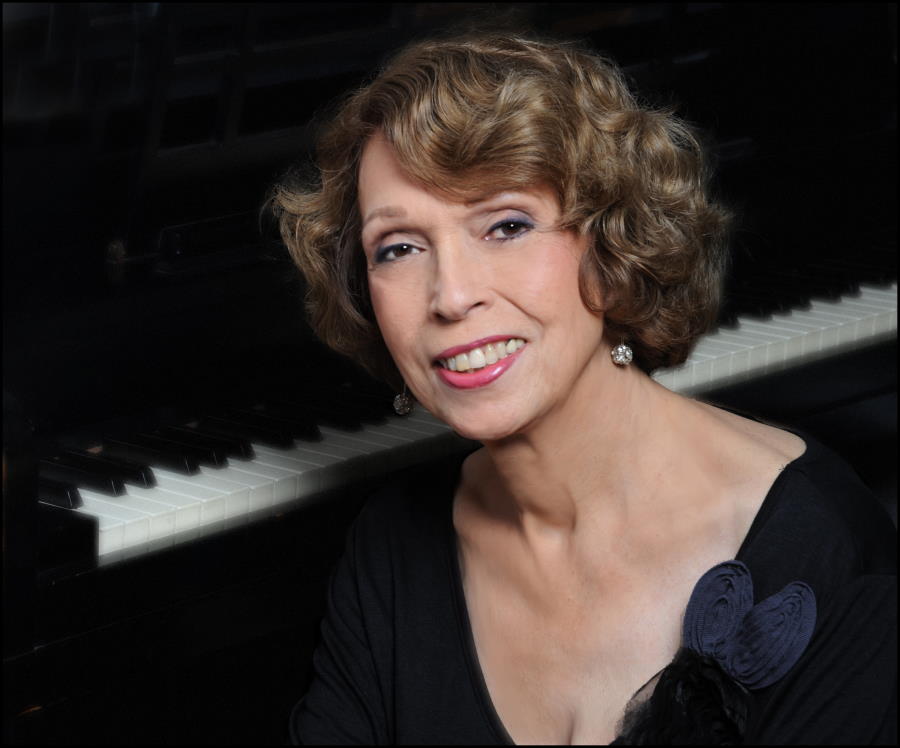Patricia Ann Rusk was a beloved figure in the Chicago music and theatre community, where she’d been a musical director/pianist/arranger/coach for over 50 years when she died on July 29 at age 80. Vivacious, and still teaching and performing, Patricia had developed cancer in the last year and finally met a challenge she couldn’t overcome.
Patricia grew up in South Bend, Ind. Her mother ran a piano studio out of the house, where young Patricia first learned to play and began teaching alongside her mother at the age of 16. She was a featured piano soloist throughout South Bend since the age of 13, as well as concertmaster of her high school orchestra. Her junior and senior year, she was also a soloist and accompanist for the Studebaker Packard choruses. She and her brother won numerous awards and medals and spent their summers in Michigan, studying music at the Interlochen summer camp. Patricia went on to receive a Bachelor’s with distinction from Eastman School of Music in 1963 (including study abroad in Florence at Villa Schifanoia) and a Master’s in applied piano from Northwestern University just a year later. She was an elite pianist all her life.
After college, Pat worked as an accompanist for Fred Waring. In the 1970s she played on the firsts national tours of A Chorus Line, Annie, Dancin’, Side By Side By Sondheim with Hermione Gingold, and Sugar Babies with Ann Miller and Mickey Rooney. She moved to Chicago during that time; legend has it she was the first female contracted pit musician in a major Chicago theatre. She was always one to break barriers. Pat was a staple pianist in the Rush Street piano bar scene, where she met her husband, Richard Wacker. After the birth of their daughter, Leslie Wacker, in 1981, she moved toward performing in more local Chicago theatre, becoming well known for her onstage pianist role while music-directing the long running Forbidden Broadway in the ’80s. She also played for legends such as Carol Channing, John Raitt, Patrice Munsel, David Copperfield, Sid Caesar, and Imogene Coca. Pat was seen or heard in almost every theatre in Chicago, workshopped many new musicals, played in countless cabarets, and performed twice at the Kennedy Center in D.C.
Pat also adjudicated and accompanied for AMDA auditions throughout the country, and her supportiveness as an accompanist was legendary at auditions. She continued teaching until the very end, including nearly 25 years at the Chicago Academy for the Arts, where she was chair of the Musical Theatre Department for over a decade. She was proud to have been the faculty advisor for their first annual AIDS benefit in 1997. After decades of a job she loved, in 2018 she won their Faculty Legacy Award, and in turn Feb. 15 was named Patricia Rusk Day by Mayor Rahm Emanuel. That year, at age 77, American Theatre included her in a Role Call feature as a “theatre worker you should know.”
Her students over the years have included a successful pop songwriter, a Grammy-winning organist, many television stars, and numerous performers on Broadway and on other stages. But always her students were people who grew to love musical theatre and relish the memory of singing with her. One of her favorite gigs at the academy was a class where non-musical theatre majors (many of them first-time singers) could work with her one on one on musical theatre repertoire. She simply believed that anyone could learn to sing.
Her time at the Chicago Academy for the Arts was marked by music-directing musicals, coaching, accompanying, arranging, teaching, and performing. She was able to bring out the best in anyone she accompanied. Her musical theatre classes were full of delightful tangents and jaw-dropping stories from her career. At times she seemed to have nearly all of the classical, American songbook, and musical theatre canon in her memory and at her fingertips. On more than one occasion when a young student was auditioning for the academy, they would have either no sheet music or have it in the wrong key. Pat would simply ask the student to start singing the song where it felt comfortable; she would listen and immediately join in with the accompaniment transposed into the key the student had chosen. She loved nothing better than to see a friend or former student in a show. She was a cornerstone of support for the artmaking that others did. She knew no strangers.
Pat was a longtime member of the Musicians Union, the Musicians Club of Women, the Music Teachers National Association, the National Guild of Piano Teachers, Piano a la Quartette, InterFRIENDtions, and a founding member of Chicago Cabaret Professionals. True to her identity as a teacher and a performer, her wishes were to donate her body to science and have her memorial be a joyful cabaret. The Chicago Academy for the Arts will be helping her family and friends put this together, with the event likely taking place in October. You can find more information, as well as make any donations in her name, at https://www.chicagoacademyforthearts.org.


